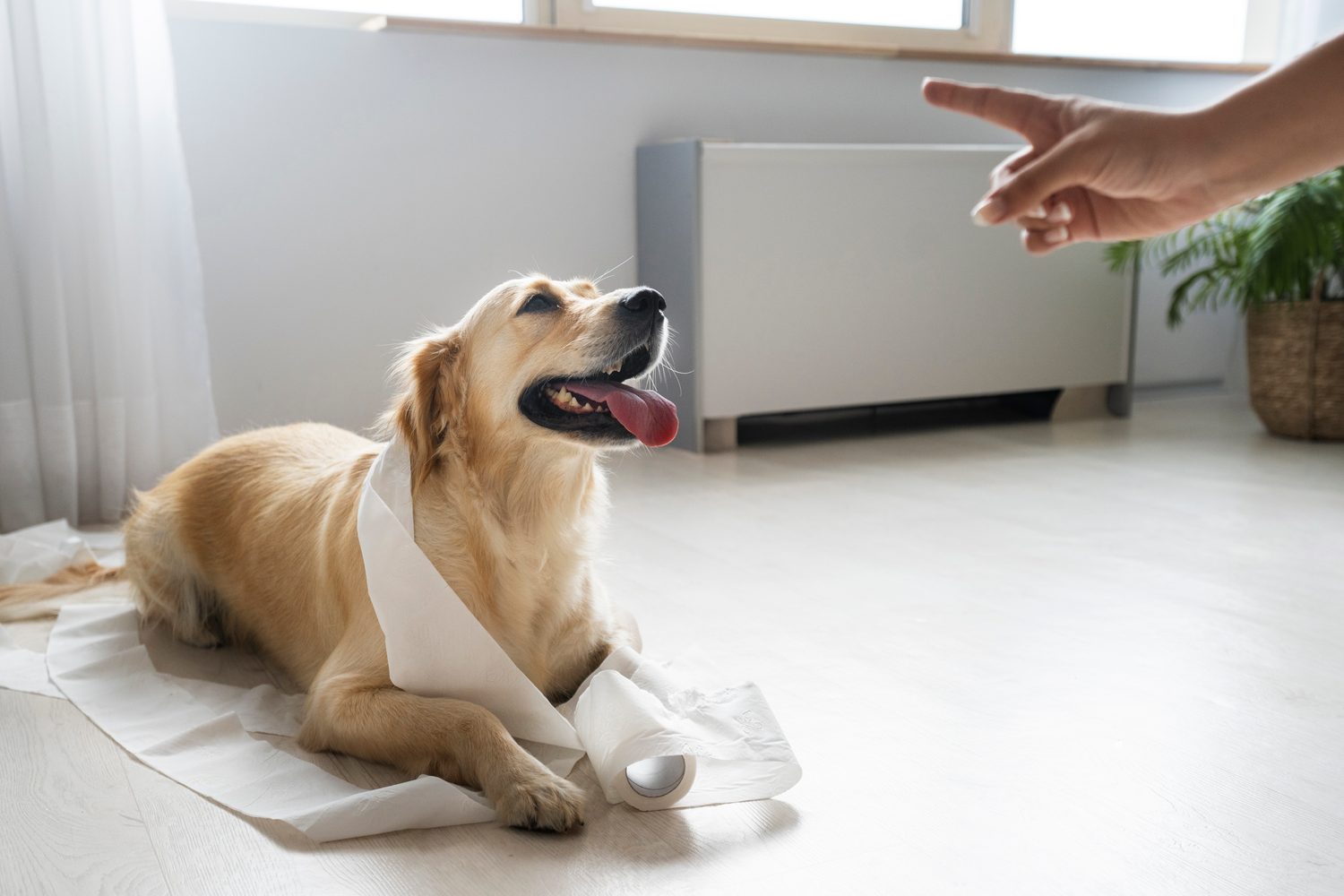How to teach your dog not to pee at home?
New laminate flooring or an expensive sofa turned into a dog toilet? Returning home to find a puddle of urine again? Our four-legged companions will certainly benefit from thorough cleanliness training. How to teach your dog to pee outside? Here are some proven methods to teach your puppy and adult dog to be clean. Teaching a dog not to pee at home can be challenging, but with patience and consistency, it can be done. Whether it's a young dog or a slightly older one, you definitely can't neglect hygiene training. Here are some tips:
Create a fixed walking regime. Take your dog out regularly, ideally after eating, sleeping, or playing. You can start with more frequent walks and gradually extend them. It's also important to respond to the signals your dog gives you - if he's restless, pacing around the apartment, or sniffing the ground, it's best to take him out as soon as possible. It is best to take your pet for short (5 minutes) but frequent walks (every 2 hours). Of course, the best solution would be to go out with the dog every time it signals a physiological need. However, a puppy like this pees very often and has no bladder control, so it may happen - especially at night - that you don't have time to let him out. In such cases, get a sanitary pad that absorbs urine well.

Praise. Praise your dog when he makes a need outside. Positive reinforcement can increase the likelihood that he will want to do the need outside. When your dog pees or poops outside, praise him warmly. It's also a good idea to have treats ready for your dog that you can give him right away. Rewards will help your dog realize that he should only do his business outside. The dog will quickly understand why he is getting the reward - this will have an excellent effect on his motivation.
Never punish for an accident. If your dog makes a mistake at home, never punish him. Punishment can lead to your dog trying to hide when he wants to do a need. We should show a lot of understanding and patience during training. We should not shout at the dog, punish him for mistakes, or stick his nose in the feces. Doing so can only put unnecessary stress on the dog and teach him bad habits. Just clean up the feces and make sure you have thoroughly removed any odor that might tempt the puppy to repeat the activity.
Patience, patience, patience. Untraining a dog can take time, so be patient and persistent. Every dog learns at his own pace. Be patient and remember that changing your dog's habits takes time and regular training. Don't expect immediate results - sometimes it takes more than a week. The key to success is systematically reinforcing positive behavior through rewards and praise. Although it takes effort, you will find that dedicated work yields valuable results! If your dog has frequent problems with peeing at home, this may also be a sign of a health problem, and you should consider visiting the vet. The main factor as to why a dog will not hold his urine is illness. A dog that has been taking care of its needs outside and suddenly stopped is most likely sick.
